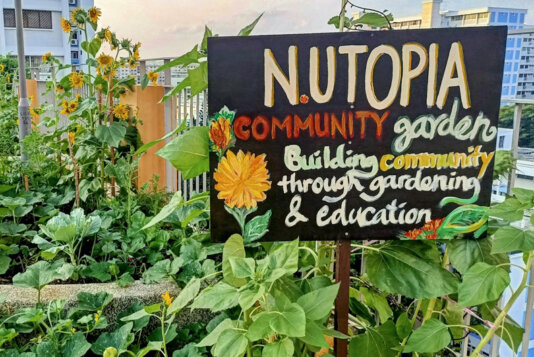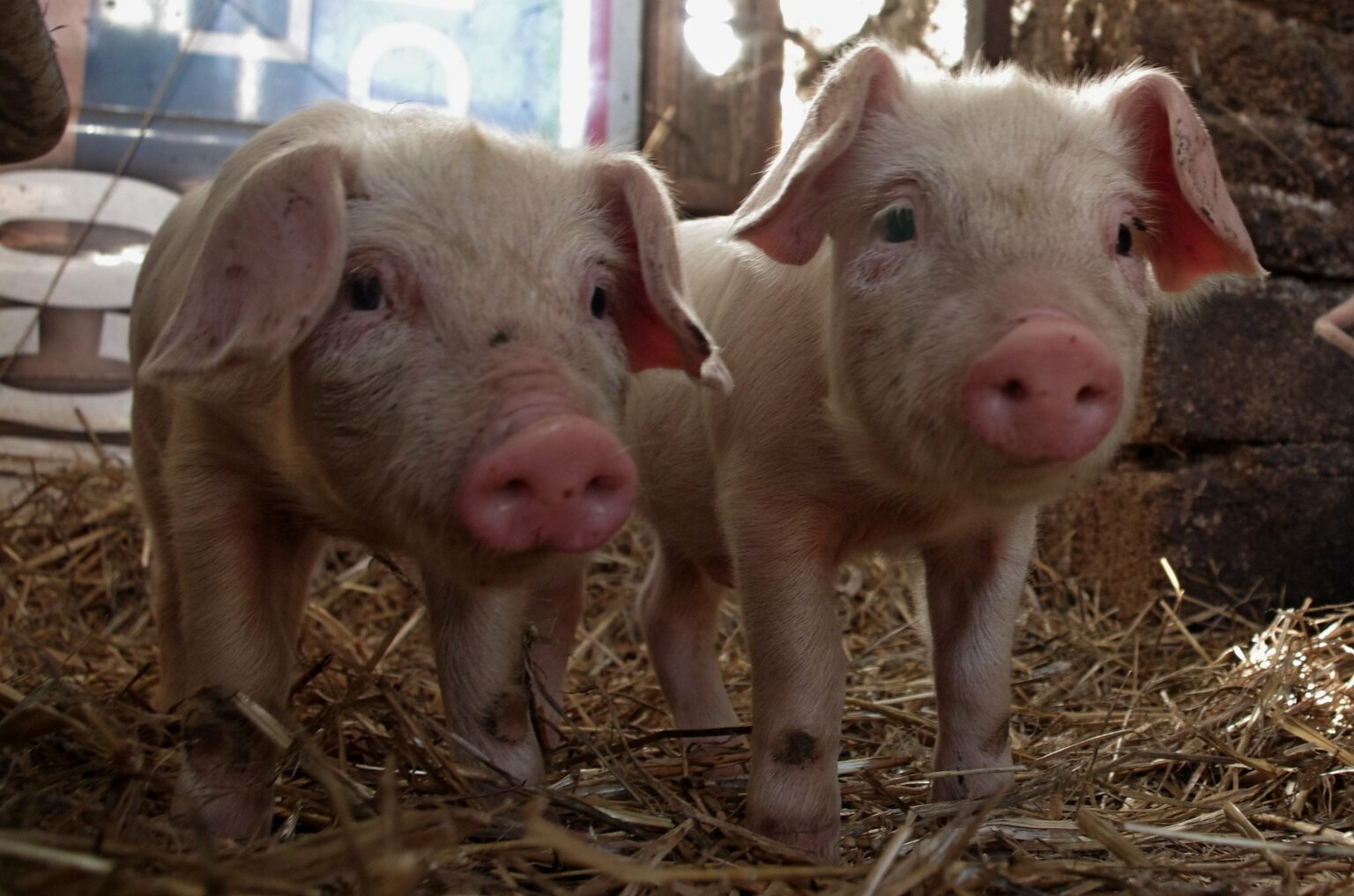- About
- Topics
- Picks
- Audio
- Story
- In-Depth
- Opinion
- News
- Donate
- Signup for our newsletterOur Editors' Best Picks.Send
Read, Debate: Engage.
| July 21, 2022 | |
|---|---|
| topic: | Sustainable Agriculture |
| tags: | #Singapore, #urban farming, #Sustainable Agriculture, #food security |
| by: | Gabriele Bettinazzi |
The exhilarating experience of living on a self-sufficient farm in Australia where the family managed to source all its needs - energy, water, and food - from its own land with minimal impact on the environment is what inspired Christopher Leow, an urban farmer in Singapore, to follow suit in his native country, a city state that relies heavily on imports.
"That was very refreshing, coming from Singapore where energy, food and water are mostly imported, and it gave me a new perspective on how I could live life and bring some of these philosophy and practices [about environmental sustainability] back home," Leow told FairPlanet.
He went on to join the urban farming company Edible Garden City to launch a sustainable farm where vegetables are cultivated with waste-recycling methods and then sold to local communities.
In Leow's mind, the role of growing food became even more essential during the pandemic, which strained the flow of imported food to Singapore. He thus spearheaded the creation of Nutopia, an ungated rooftop garden in the Serangoon district, to provide free food for the local community.
At Nutopia, a team of volunteers grow a variety of crops such as lettuce, corn, eggplant and potatoes, using the agroforestry method in which the soil is covered with trees and shrubs - much like in a rainforest - to create a resilient environment that can live off rainwater. This in turn cuts down on irrigation while spawning a huge biodiversity of insects and birds that facilitate the recycling of nutrients.
Nutopia encapsulates the main driving force that turned urban farming into a common activity among Singaporeans: the desire to foster social bonds while making food supplies more resilient and environmentally friendly.
"We created an open space for people to come together and get harvest plants as and when they wanted," said Leow, adding that one of the exciting benefits of the initiative is the intergenerational sharing of knowledge and experiences between children and the elderly, as well as the opportunity to socialise and forge friendships.
The practice of growing food has exploded in the city over the last few years. According to Leow, individuals are now producing vegetables in their own flats, thousands of community gardens are springing up in unutilised spaces like rooftops and several start-ups were established to produce food using advanced techniques that minimise the use of natural resources; one such method is hydroponics, where plants are grown in nutrient-rich water without the need for soil.
As is often the case in Singapore, the government has taken the lead in boosting the rising sector in line with its 30-by-30 initiative, which aims to strengthen food security by producing 30 percent of nutritional needs locally and sustainably by 2030. While this is a fairly ambitious goal considering that roughly 90 percent of Singapore's food is currently imported from abroad, it is nonetheless urgent since overseas supplies could dwindle as the Malaysian ban on chicken exports recently showed.
To this end, the Singapore Food Agency has set up the Agri-food Cluster Transformation Fund to support "the transformation of the agri-food sector into one that is highly productive, climate-resilient and resource-efficient," through innovation and technology upscaling.
High-tech indoor farming is one of the novel approaches contributing to the 30-by-30 initiative as it can produce more food using less land compared to outdoor farming, according to Chen Wei Ning William, Professor of food science and technology at Nanyang Technological University.
Furthermore, indoor farms can be set up inside buildings and easily produce crops like vegetables around the clock with artificial lighting and customised amounts of nutrients and fertilisers, while water consumption is dramatically reduced as most of it can be collected and reused. On top of that, there is no need for pesticides.
"Under this controlled environment, vegetable yield can be easily doubled and the only challenge is to reduce the cost of energy for cooling down the temperature," he said, adding that renewable energy is a good option to offset that and make indoor farming carbon neutral.
Growing produce locally can also boost production by reducing food loss, as the practice shortens the distance between farms and consumers. "About 30 percent of the vegetables Singapore imports from Cameron Highlands in Malaysia, for instance, are already perished when they arrive in the city due to the distance and warm weather," Chen explained.
The Singapore Food Agency is also supporting aquaculture enterprises to raise productivity in a sustainable fashion.
Professor Chen believes increasing fish production through high-tech aquaculture is crucial for Singapore to boost its food resiliency. "Aquaculture has a huge potential because you don’t need land but you can just develop it offshore and fishes grow a lot faster than cattle and pigs, while sensors can monitor water quality and temperature to minimise the impact on the environment."
Beyond boosting commercial farms, these efforts are also helping the average Singaporean dabble in farming. The government leases out plots of land across the city to encourage people to grow food, and an increasing number of people are taking up farming as both a commercial activity and a hobby, according to Leow.
Many others are making the most of any available space they have at their own place. Foodscape Collective, a group created by four acquaintances to contribute to a fair and circular food system, has collected data on home gardeners. In the process, they interviewed hundreds of individuals who grow produce in gardens, balconies, corridors and windows - wanting to eat more nutritious and chemical-free food as well as share experiences with like-minded neighbours.
Making the food system less destructive to the environment is another common motivation driving Singaporeans, especially of younger generations, towards farming. "I speak to students of different ages from university to primary school, and many of them are very concerned about the environment and are interested in the idea of growing their own food [to reduce their footprint]," said Leow.
He acknowledges that Singapore isn’t unique in its adoption of urban farming, seeing as similar practices have gained popularity in countries like Japan and Thailand, where schools and malls have been converted into farms. But what characterises Singapore is that concerted national efforts have been made by both the authorities and communities to increase local food production.
"Everybody knows this is the goal," he said.
For some Singaporeans, food insecurity is a daily reality regardless of supply chain disruptions.
The 2020 Hunger Report by Singapore's Food Bank found that about 3.5 percent of Singaporeans face severe levels of food insecurity, meaning that they have limited access to nutritious food for weeks or months.
"It’s very rare we have instances of people who die of hunger in Singapore, but some are malnourished because they don’t eat healthily, which leads to higher risks of diabetes and other diseases," Mohamad Faiz Selamat, a volunteer and board member of the Singapore-based not-profit Free Food for All, told FairPlanet. He added that this is often a direct result of high food prices and that many financially insecure people tend to consume canned goods because they are affordable.
To tackle the problem, Free Food for All provides people in need with healthy food options, such as vegetables and mushrooms, which are also more environmentally friendly than meat products. "During Ramadan, we served about 19,000 porridge meals where we substituted beef with soy-based alternatives," he said.
The charity produces vegetables in its own office through a hydroponic system and has recently launched a programme where people at risk of food insecurity are provided with the tools and knowledge to grow produce they can use on a daily basis, such as lettuce and nai bai.
"We gave home hydroponic kits to some of our beneficiaries and we are now aiming to set up a community garden in the common spaces of a community of 20 families to allow them to grow plants together."
Beyond helping disadvantaged people adopt a nutritious and affordable diet, growing food is a good way to create mutually beneficial relationships.
"From our experience in the past years, we realised that the most important thing is the social support between neighbours," Selamat explained.
"So, the idea behind the community garden is to get people to communicate, share and talk, because this means potential problems are addressed earlier, not just in terms of food security - but also in terms of mental health, as many people are feeling much more isolated nowadays."
Image by Sim Ding En
By copying the embed code below, you agree to adhere to our republishing guidelines.


